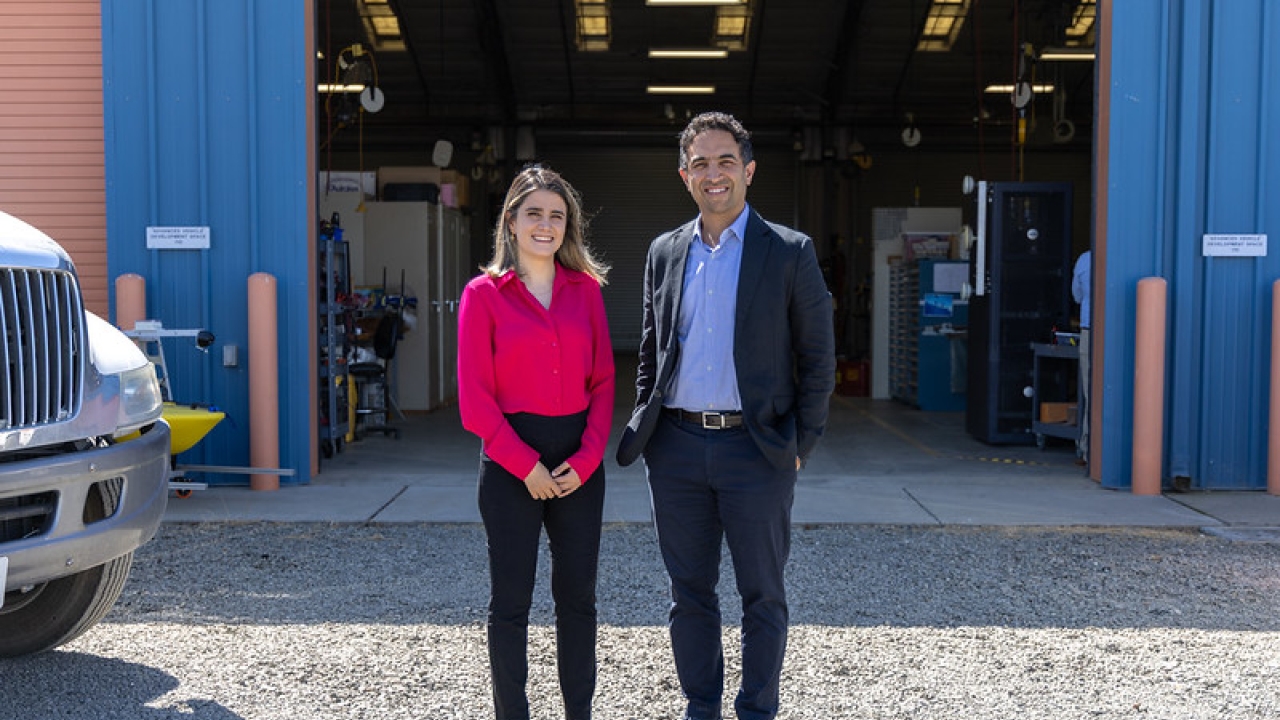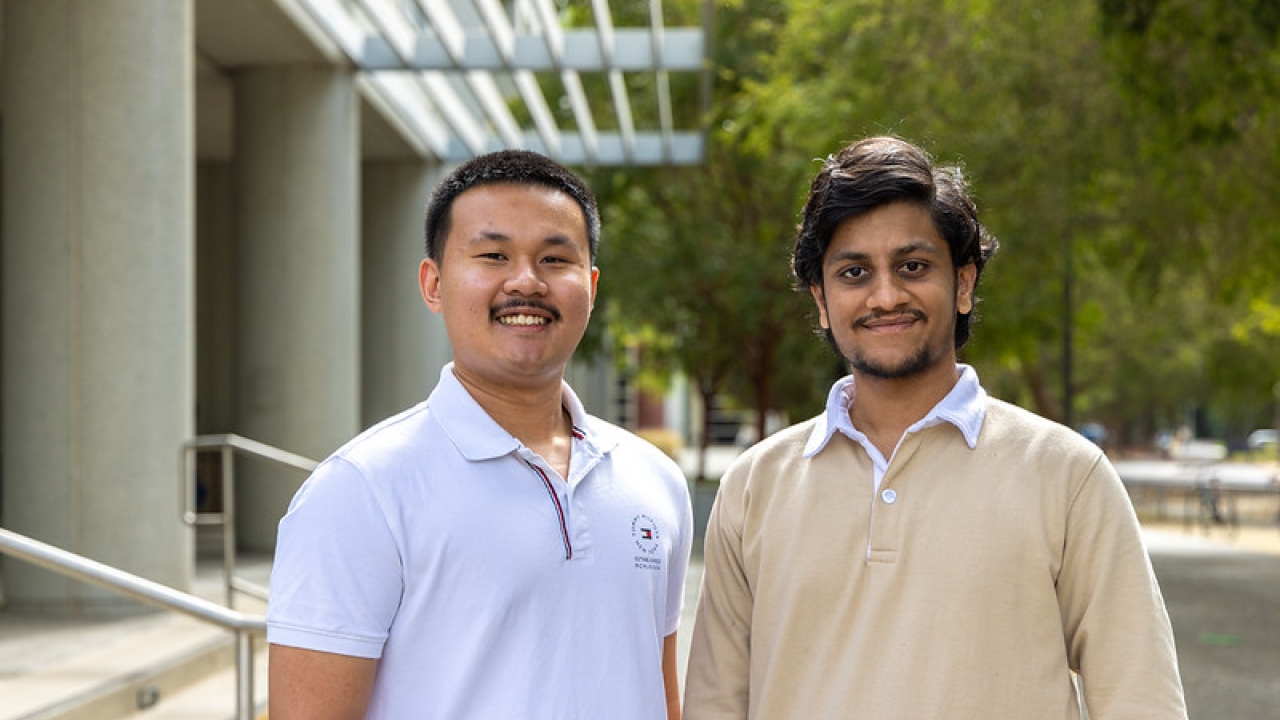Distinguished Lecturer Dr. Sandra K. Johnson Discusses Blockchain, Role as Hidden Figure
 Dr. Sandra K. Johnson, the founder of Global Mobile Finance, Inc., a fintech startup company, and the founder of SKJ Visioneering, LLC, a technology consulting company, presented an overview of blockchain and discussed her experience as a hidden figure in engineering at a virtual distinguished lecture on October 22, 2020.
Dr. Sandra K. Johnson, the founder of Global Mobile Finance, Inc., a fintech startup company, and the founder of SKJ Visioneering, LLC, a technology consulting company, presented an overview of blockchain and discussed her experience as a hidden figure in engineering at a virtual distinguished lecture on October 22, 2020.
“Blockchain opens the door for new, innovative and creative ways of doing things that are different than the processes we have in place now and I’m excited for the prospect,” said Johnson.
The lecture included the specifics of blockchain, a distributed ledger technology, as the foundation for cryptocurrencies, the emergence of blockchain as a solution for the reconciliation of peer-to-peer transactions and other interactions between non-trusted parties, and distributed consensus. She touched on blockchain implementations, including those for Bitcoin, Ether and cryptographic algorithms. Johnson also discussed smart contracts, safety, security and the potential of blockchain as a new method for disintermediating businesses or the withdrawal of funds from intermediary financial institutions, such as banks and savings and loan associations, to invest them directly.
Blockchain works when one party requests that funds be sent to a receiving party. The request will go through a blockchain entity. The individual entity, a minor, works to create and validate the next global block in the blockchain and will add this transaction to other transactions. This group of transactions becomes a block. Minors from around the world are competing with each other to determine which one of their blocks will be included in the blockchain.

She gave the example of exchanging money with someone through a third party such as credit cards, PayPal, or Square and how these processes aren’t necessarily trustworthy due to backend processing not always being transparent, those services opening hacking and fraud opportunities, or banks and other institutions making mistakes. She suggests blockchain as a better solution to exchanging currency because the technology is a trusted third party.
“This is a third party that is less expensive, more trustworthy and it enables one to actually see the transactions because they are recorded in such a way that is very difficult for anyone to tamper with,” said Johnson. “If anyone tries to modify the data, it would be almost impossible to do that, so you can trust the technology.”
In the Bitcoin blockchain they need to build a consensus on which minor will be added to the global block.
“There is a method called the proof of work that says which minor has the block that will be added. Essentially it is a highly secure cryptographic algorithm and the transactions and information in the block go through the algorithm. The winner will share the data with the other minors, they will verify the winner and then the winning minor places their block on the global chain of blocks, said Johnson. “Only when this happens can the original party complete their transaction.”
This process takes about ten minutes, but it is viable in many applications.
“Blockchain has become more powerful because transactions can be more complex,” said Johnson. “For example, it can be a smart contract, which is a software version of a legal contract. Then it is coded into a program and added as an item in the list of transactions in the blockchain. Once that block becomes part of the overall blockchain, it has the qualities of any other data placed on the blockchain.”
Blockchains can be public data that are open to anyone, or private data such as healthcare information. These can be used in many industries including government, hospitality, finance, real estate, travel and more. Many business are also accepting Bitcoin now including Microsoft, AT&T and Amazon.
“Blockchain technology is a game changer, can disrupt many industries and I believe it’s a technology of the future,” said Johnson. “However, it is important that we understand the technology and understand if it is a good fit for what we want to do. It is not a good fit for everything, or everyone.”
A hidden figure in engineering
Johnson earned her B.S., M.S. and Ph.D. degrees, all in electrical engineering, from Southern University, Stanford University and Rice University, respectively, becoming one of the first African-American women to earn a Ph.D. in this field.
“When I grew up my family was not aware of the engineering profession. When I was in high school, I got a letter from Southern University about an engineering summer program for high school students,” said Johnson. “I spent the summer on campus and was introduced to the engineering programs and fell in love with electrical engineering and knew that was what I was born to do.”
A majority of the work at the universities Johnson attended included group projects. She experienced no one wanting to be on her team, not even the other women. She formed a team with other students that were not included and ended up among the top performing teams in the class.
Another memory she touched on was when she was a student working in a lab with other master’s students and the lab assistant approached her and told her she was in the wrong place. She let him know that she was actually a Ph.D. student and after he apologized she said, “That’s okay this time, but next time you see someone like me walk into this lab, don’t be so sure of yourself.”
When she started her career at IBM, she began to realize the importance of mentors.
“It is important to have mentors who are in positions of power and influence that can make things happen for you,” said Johnson. “Not just in work, but through participating in other activities.”
Johnson was on the board for the Computing Research Organization and became actively involved with some of the most successful researchers in North America.
“At the time, I didn’t know how valuable that was until I became an Institute of Electrical and Electronics Engineering (IEEE) fellow candidate and needed recommendations from other IEEE fellows. It is very important you have mentors that have been around the block,” said Johnson.
Johnson worked in sales and business development, worked around the world and eventually started her business, Global Mobile Finance, after spending time in Africa and noticing that they didn’t carry cash and primarily used mobile money.
“Throughout this career, I have been given international assignments because I was flexible and open to learning new and different things, and I was excited about the adventure,” said Johnson. “I would encourage all of you to seek out these types of opportunities because living abroad truly made me appreciate living in the United States.”
She ended her lecture with some advice for graduate students.
“Hang in there. You may feel like you can’t do this and I’m here to tell you can. I encourage you to find someone who can provide moral support for you and pick you up when things become difficult,” said Johnson. “The graduate school process is designed to weed those out who don’t have what it takes. It is something that you really have to want to do. Nothing that is worth anything valuable is going to be easy. Don’t underestimate the power of support. You can get your lifelong friends this way.”
To watch Johnson’s distinguished lecture, click here.




